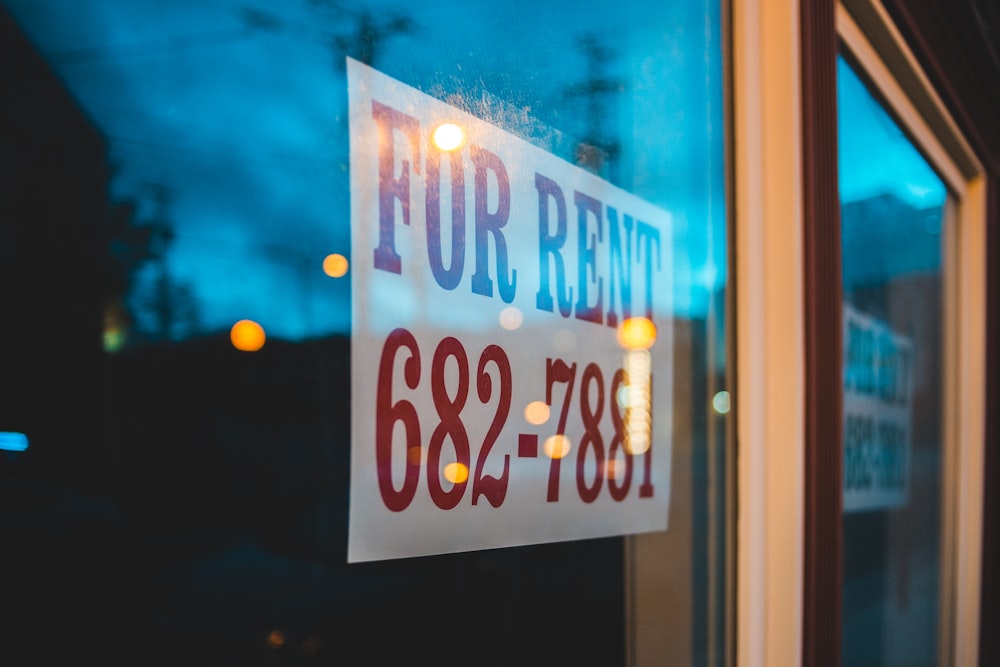The goal of any astute landlord is to have full occupancy consisting of paying, satisfied tenants. An empty property or unit in a multifamily complex means lost revenue. During these uncertain times, it’s more important than ever to make sure lease agreements are proper and binding.
Every term must be spelled out and each portion must be carefully read by the tenant and signed. These terms must specifically include rent payments and fees (such as cable, WIFI or other utilities) and of course, early termination of lease clause in the event the tenants vacate the property before the end of rental term.
In most cases, proper screening of tenants before they take occupancy will rule out renters who do not take their part of their lease agreement seriously. Now with computers tracking evictions and property abandonment, it is no longer possible for dwellers to pull a “midnight move” or just leave the keys and take off. Not unless they wish to be sued and/or have their credit ruined. Nobody want’s that.
There are cases, however, where a tenant wishes to be let out of their agreement early.
This is where it gets tricky, as it benefits the landlord and tenant to work together for an amicable solution if possible. The reason for leaving given by the tenant (and of course verified) should guide a landlord’s action.
Of course, from the landlords point of view they may also be able to lean on the support of a property or block management company that can advise them on early termination in a case by case basis and help enforce any agreed actions.
Possible reasons for early termination
The majority of the time it is up to the landlord on how this plays out, expect in some legal circumstances. Landlords will have to carefully weigh up this decision as they will be forgoing reliable rental income of their property.
However, in some instances, it may be easier to just let the tenant walk away and move on. It will also be wise to check your state laws as in some cases landlords may be able to collect a penalty or early termination fees.
So let’s take a look at some possible reasons why a tenant may want to break their lease early.
Military Deployment
This goes back to the screening process. A landlord, doing due diligence during background check should know if they are renting to a military member or family. They cannot discriminate against military families for that reason alone; however, landlords must keep in mind that the lease term ceases to be binding if the military person is deployed more than fifty miles away. The Service Members Relief Act as detailed on The Balance Careers.com website.
This act was passed by congress to protect service personnel and their families in the case of active duty deployment that can occur during the lease. They are still responsible to give proper notice (30 days from the first of the next calendar month where rent is due) and leave the property in good condition, to recoup their security deposit.
Landlords living near a military base should expect at least some of their tenants will be military and that a service member can be deployed at any time.
Divorce
If this, unfortunately, happens to a couple that is currently under lease with you it of course will greatly affect living arrangements. They may both wish to leave; they may both want to stay. Individually they may not be able to afford the rent.
To make things as easy as possible in this situation, and to avoid getting caught up in any drama the best course of action may be to agree on an end to the joint lease and move on.
Domestic Violence/Abuse
Many states have a clause that a tenant may terminate a lease due to abusive behavior from a partner or family member. Details concerning this clause can be found on Nolo.com. Some victims must flee to a shelter or change their address for safety reasons.
Orders of protection can only do so much, and sometimes the tenant is in fear of their safety. Also, if the main provider of income is jailed for attacking a spouse, the survivor will not be able to make the rent payment. In that case, holding a tenant to a lease where they cannot pay rent is not practical.
Invasion of Privacy/Abuse
Tenants can also make a case end a lease early if abuse or invasion of privacy is being perpetrated by the landlord or one of his or her agents. Doing background checks on property managers, maintenance staff and contractors will go far to prevent this situation.
Unliveable Environment
Keeping the property habitable is a partnership between landlord and renter. The tenant has the responsibility to not abuse the property, adhere to pet policies, and do their best to live as a good neighbor.
The landlord, however, must make timely repairs and provide services such as mold abatement and pest control. This should all be spelled out in the lease.
Failure to supply a safe, healthy environment for tenants can give them cause to vacate early and possibly tarnish the landlord’s reputation. If the landlord is using a property management company it’s down to them to make sure they are performing all the required actions and contractual agreements.
Job Transfer
Tenants will not have control over any job transfers so it’s a bit unfair to hold them to a lease in his circumstance. Added to this some state laws allow tenants to break their lease for this reason.
Just make sure you know where they are going, and if they are only transferring locally you may be able question the need to move.
What to Do with a request for early termination?
So now we have outlined some possible scenarios for early termination from the tenants point of view, what should be a landlords correct course of action?
Find out the reason.
First point of call is to find out the reason they want to move out, and have them provide proof.
If the tenant simply wants to move out, or move into a new place with a partner you have no real obligation here to end the lease early.
However, if they fall under of the categories, we touched on above you should work with them to find the best solution.
Review the lease
It may have been a while since the tenant laid eyes on this or remember what exactly was in it, so it’s best to remind them. For example, they may be responsible for the remaining rent payments until a new tenant is secured for the property. Which could be a touchy subject for them.
Transparency here will be your best approach. Just be honest with them and let them know if they have any grounds for early termination and what needs to happen.
Do not allow a tenant to find their own replacement for a sublease
It may be an act of good faith; it may be a ploy to get out as quickly as possible. Do not let them find a new tenant. You will have your set screening processes that work, they won’t. This could result in new tenants coming in that you just don’t want.
Nevertheless, if they do have a tenant, they are willing to vouch for, friend, brother or sister etc it may be worth considering it. Just ensure they go through the same screening process as everyone else.
Should You Let Your Tenant End Their Lease Early?
The answer to this will depend on the above criteria and your relationship with your tenants. Your reputation as a landlord should matter as much as your bottom line at the end of the day. You may have no alternative but to let them go, you shouldn’t make them stay. You can however remind them of their obligations under the signed lease agreement.
You also need to be prepared for things if the situation turns sour. For example, a tenant may present false charges around poor living conditions or intrusiveness just to try and get out of their lease early. It’s rare, but it could happen.
This is why it’s vital you keep maintenance records up to date and have evidence to show work, repairs or improvements done to the property.
It may be best to also have your own Early Termination Policy that applies to all tenants. If you let one tenant break their lease but reject another you could run the risk of discrimination. Having a policy will avoid this situation happening.
Alternatives to Early Termination
Disability Accommodation
If a tenant develops a medical condition and has requested a disability accommodation, it is in the landlords best interest to provide a solution that is amicable for all (let tenant move to a downstairs unit, let them rent a larger apartment to accommodate visits from caregivers) which sometimes leads to higher rent payments for a larger or lower level apartment (downstairs apartments often cost a bit more to rent ) and fills and empty unit.
It’s a win/win situation which bolsters the property owner’s reputation and adheres to policies noted in the Americans With Disabilities Act. It is better to make a small accommodation such as providing a disabled parking spot or wheelchair ramp rather than deal with an empty unit because the tenant is forced to move.
By working with the tenant, landlords will be able to accommodate reasonable needs. Concerning such accommodations, the operative term is “reasonable”. If you want or need information you can visit the Hud.org website.
Non-Disability Accommodation
To keep a good tenant on the rent rolls, giving the option of adding a spouse/partner to the lease or allowing them to transfer to a larger unit to accommodate a growing family is a viable solution. Oftentimes family changes are planned, but sometimes families can grow seemingly overnight (an adult child returns to the nest, an unplanned pregnancy, an aged parent need care).
In these instances, letting a couple move from a one to two- or three-bedroom dwelling is a good investment if the tenants are timely payers and good stewards of the property.
If there is a transfer fee or policy included in the lease, let that be the guide. Otherwise, draw up a contract specifying the changes in terms. Images of sample templates of lease transfer forms can be found online using any search engine.
Month to Month Rental Agreement
Some renters cannot or would not like to make a yearlong commitment to a property. Offering a month by month term (usually at a higher rent rate) will prevent problems down the road.
If a tenant requests to leave before the end of the lease contract, knowing the legal guidelines and being flexible to work out individual situations are in the best interest of both parties to keep the rent rolls stable and income flowing.






